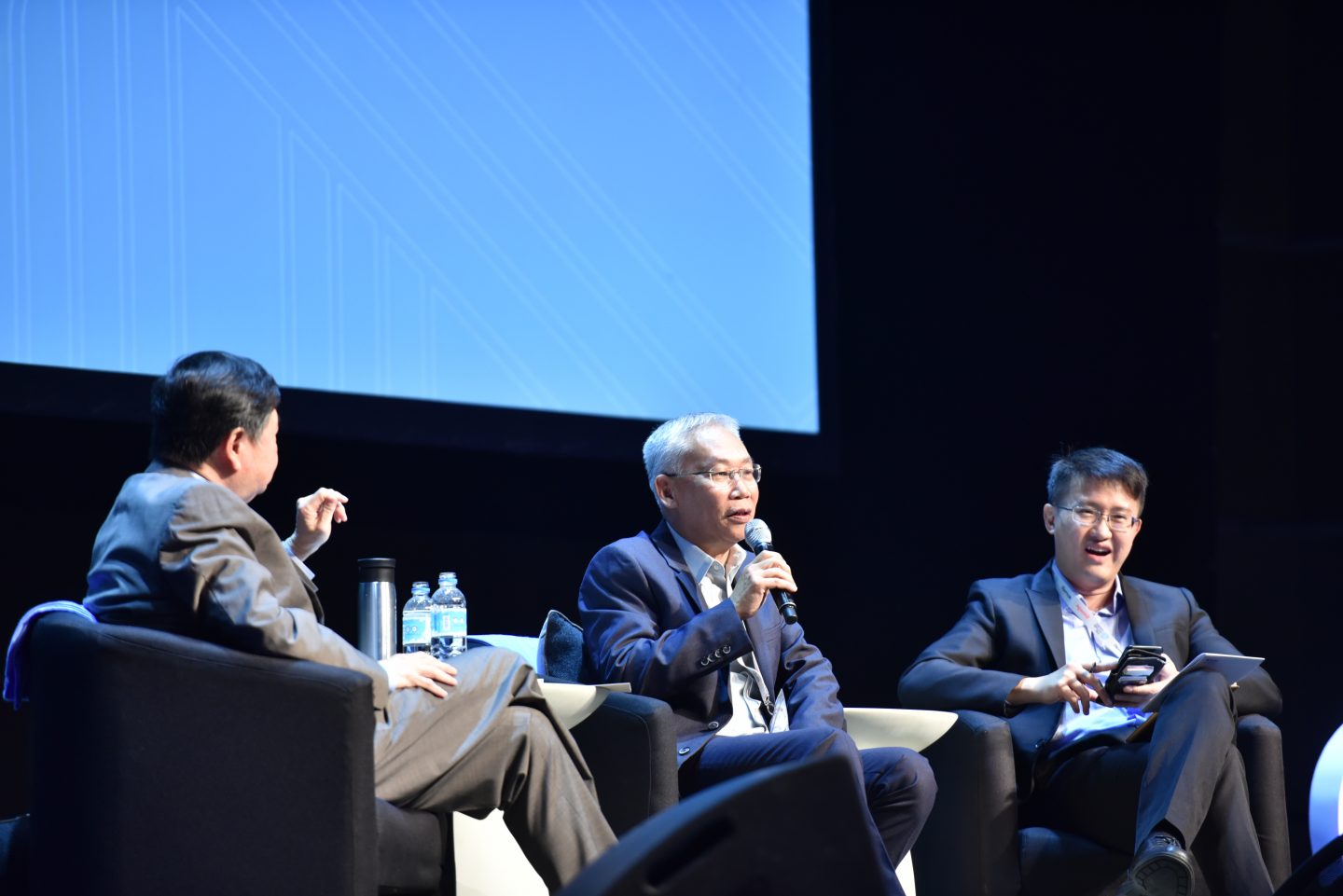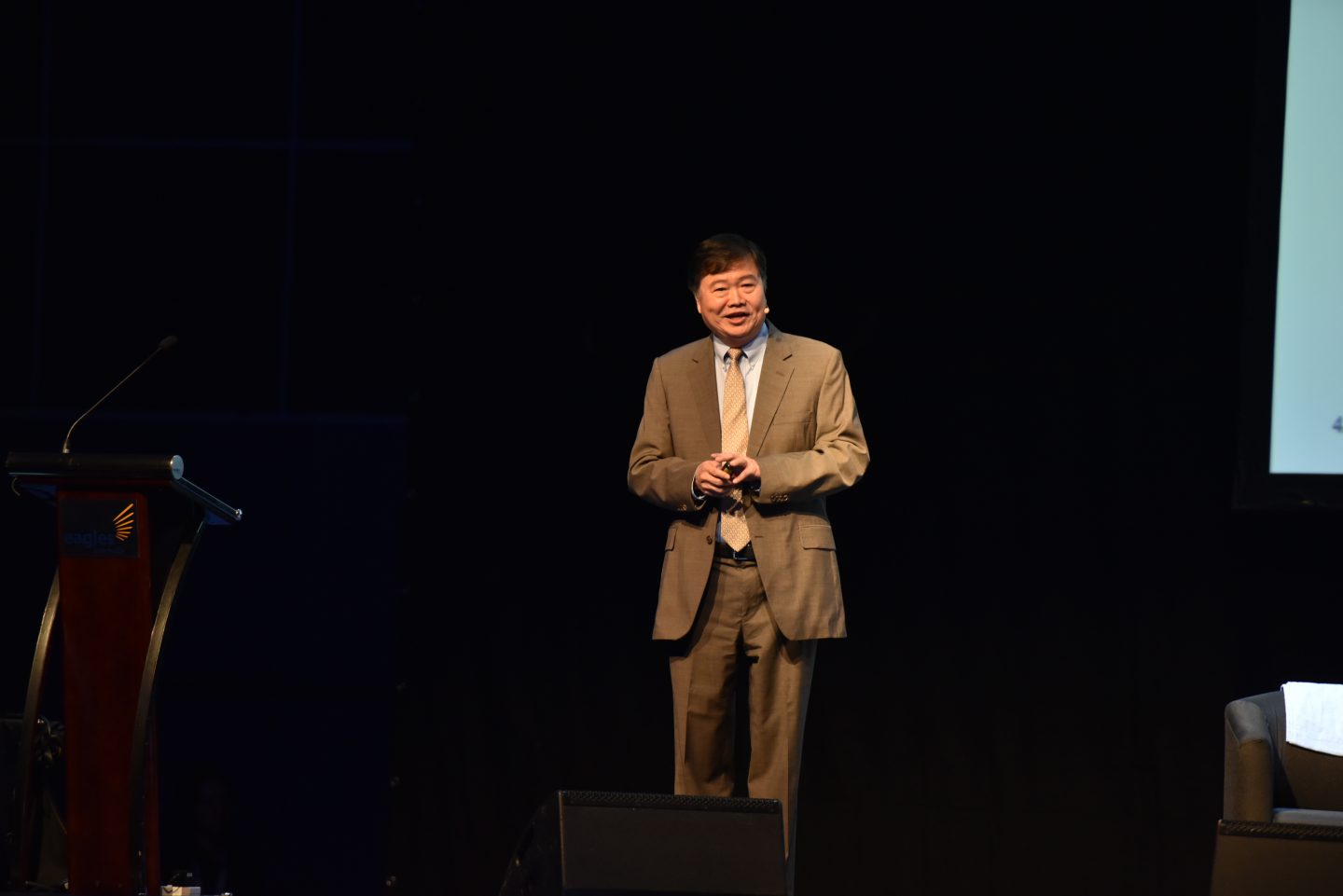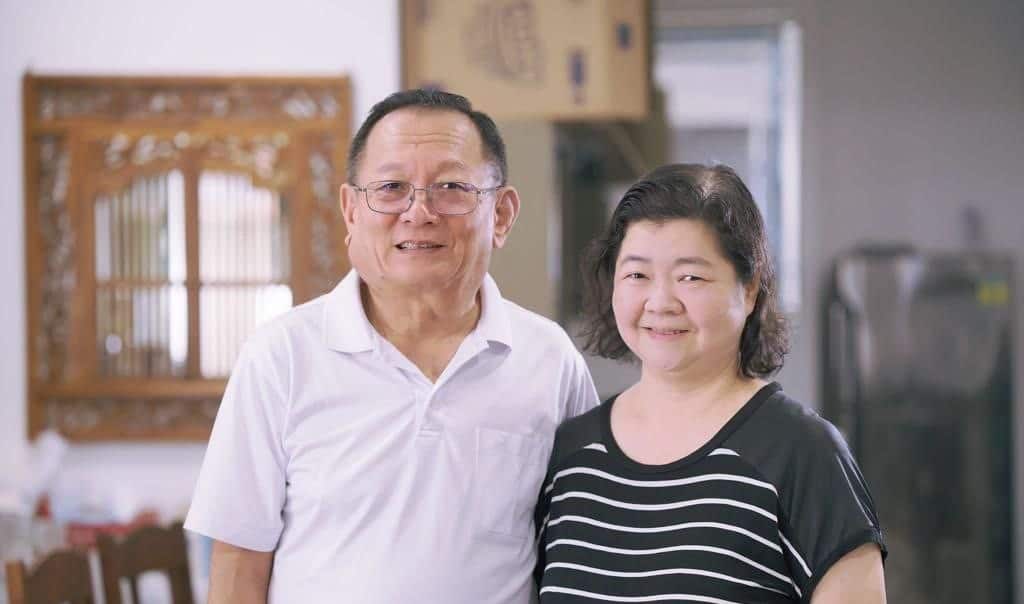Leaders need commitment and courage, say speakers at opening of Eagles Leadership Conference
Salt&Light // July 25, 2019, 7:35 pm

Samuel Lam, President of Linkage Asia, Lawrence Leong, the deputy chief executive of Mandai Park Development and Dr Kenny Tan, the chief executive of St Luke's Eldercare speaking at a plenary dialogue on day one of the Eagles Leadership Conference. All photos courtesy of Eagles Communications.
What makes an effective leader? It’s not just about having all the requisite technical skills, but the ability to inspire others and to be fearless.
“It’s not because competencies aren’t important, but they only get you up to a certain level. It’s the commitment that gets you to the next level,” said Samuel Lam, the president of Linkage Asia, a leadership and organisation development consultancy. He was on speaking at day one of the Eagles Leadership Conference held at the Suntec Convention Centre today (July 25, 2019).
There are five types of commitments one needs, he said:
- Commitment to inspire
- Commitment to engage
- Commitment to innovate
- Commitment to achieve
- Commitment to become (a purposeful leader)
More often than not, most leaders are not naturally charismatic, but they can still inspire in other ways such as servant leadership. Or if a leader isn’t particularly innovative, they can hire people who are, or creative structures that encourage innovation.
In his own company’s research, they found that a commitment to these values resulted in a direct correlation with engagement, competitive differentiation, revenue growth and profit growth.
Commitment is like marriage; beyond “I do”, it’s a lifetime of hard work.
But commitment is more than just a person’s word, Lam said. To be able to work at improving an aspect of self, or the company, a higher purpose is required, especially to sustain it in the long-haul. Otherwise the work becomes the “most boring thing”.
“If you have a higher purpose, (the work) becomes a meaningful thing.”
One also needs the power to commit, to be in the right position to change or create change, perseverance and a community to support the transformation.
He likened commitment to marriage, acknowledging that trying to improve one’s leadership traits is beyond saying “I do”, but requires a lifetime of hard work.
“When you have competencies and commitment, you start to experience impact,” Lam said.
A leader who is fearless
During the same forum, deputy chief executive of Mandai Park Development Lawrence Leong spoke about what it means to be a leader with courage.
Firstly, he is able to take on projects he pioneers because he believes ”if God has asked me to do something, God will provide the resources for me”.
Drawing on his current position and his past roles spearheading the inaugural Formula One Night Race in Singapore and as a senior officer in the Singapore Armed Forces, he pointed out three ways that leaders can show their courage by being willing to stand out in a society that likes to “toe the line” when they spot mistakes, or there are elephants in the room to confront.

Samuel Lam, president of leadership and organisation development consultancy Linkage Asia: “It’s not because competencies aren’t important, but they only get you up to a certain level. It’s the commitment that gets you to the next level.”
That does not mean that a good leader is headstrong all the time, both Leong and Lam clarified later in the question-and-answer segment with moderator Dr Kenny Tan of St Luke’s Eldercare.
Lam pointed out that Paul provided three examples to follow in the face of persecution: (1) To confront the opposers, in which sometimes one will get beaten up; (2) To appeal to the authorities; (3) To escape through a basket. The last one, he said, showed that sometimes running away from an issue is the right thing to do.
At the core of being a purposeful leader is one who is willing to nurture their mind.
It’s about wisdom and prayer, responding measuredly rather than rashly, they both said.
Leaders also need the courage to be different, Leong added, “to know that there is a time and season to say things that won’t please the audience”.
“If everyone thinks the same way, we won’t need meetings,” Leong said. But interacting with colleagues is about putting different perspectives on the table, and then the leader decides what’s the best way forward.
When it comes to making choices, a leader may not be right all the time. But this is an opportunity for leaders to prove their authenticity, said Leong. If they were wrong, leaders should say “sorry”, a word he finds senior managers have trouble saying due to their ego.
Renewal of the mind
At the core of being a purposeful leader is one who is willing to nurture their mind, Lam said towards the end of the hour-and-a-half session.
He pointed out the human condition: By changing how we think, we change how we feel, then we act. As we do what we say often enough, they become habits, and eventually part of our character.
Leaders have to regulate their thoughts and feelings, or that’s where “bad behaviour, bad habits” start to form, he said.
And where do we start? Meditating on the Word – that we are to mind the things that are above (Colossians 3:2), because that’s where transformation begins (Romans 12:2).
We are an independent, non-profit organisation that relies on the generosity of our readers, such as yourself, to continue serving the kingdom. Every dollar donated goes directly back into our editorial coverage.
Would you consider partnering with us in our kingdom work by supporting us financially, either as a one-off donation, or a recurring pledge?
Support Salt&Light




